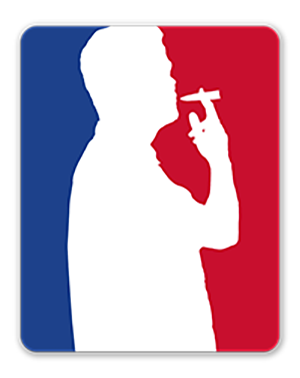As cannabis legalization spreads around the country and around the world, the questions surrounding marijuana and athletics are being asked more frequently than ever before. The debate over whether the drug should be banned by bodies governing athletic competition is a contentious one. In this blog, we will explore how cannabis is regulated in sports leagues and associations in the United States and around the world, as well as looking at what the future of marijuana in sports might hold. We will also explore the question of how cannabis actually affects athletic performance.
Marijuana in American Sports
In the major sports leagues of the US, cannabis is quickly becoming more accepted. Just ten years ago, the substance was banned in all four of the major leagues and positive tests were met with fines and suspensions. Today, the landscape looks quite different. Here’s a look at where things currently stand with marijuana in each league:

- NBA: Marijuana remains banned, but the relaxed testing policy brings the league more in alignment with its Big Four counterparts
- NHL: While the NHL tests players for cannabis, there’s nothing in place to punish positive results. If a player has abnormally high levels of THC, they’re treated as they would be if they had an alcohol problem.
- MLB: As of 2019, Major League Baseball has removed marijuana from its list of banned substances and treats it the same as alcohol. Players do, however, remain subject to discipline for the use or possession of drugs on league property.
- NFL: The new CBA shortened the testing window for marijuana from four months to just one week of training camp. So, in essence, any player who is capable of abstaining from cannabis use for a few weeks every year in August has nothing to worry about. The threshold for a positive test was also lowered, and suspensions were replaced with fines.
The momentum in American sports leagues is definitely moving towards the complete removal of marijuana from banned-substances lists. In another ten years, it is likely that the NHL’s approach of treating it as a health issue will be uniform across all of the leagues. Teams will test because they want to know if their million-dollar assets have a “marijuana problem,” but fines and suspensions will be a thing of the past.
Cannabis in Collegiate Athletics
NCAA rules are more strict than professional leagues, but they are still moving towards relaxation. A move made just a few weeks ago on February 25th, 2022 significantly raised the positive test threshold for athletes from 35 to 150 nanograms per milliliter.
Dr. Brian Hainline, the NCAA’s chief medical officer, said of the move, “Marijuana is not considered a performance-enhancing substance, but it remains important for member schools to engage student-athletes regarding substance use prevention and provide management and support when appropriate.”
A positive marijuana test for an NCAA athlete results in entrance into a school-instituted “management plan” for cannabis use. Disciplinary action is only taken if a student fails to follow the management plan.
Marijuana in International Leagues
International leagues have been slower to move towards cannabis acceptance than those in the US, but there have been small changes. The Union of European Football Associations (UEFA) recently changed the designation of cannabis to a “substance of abuse.” This term includes those substances that are frequently used in society outside of the sports context.
If a player can establish that a positive test is a “substance of abuse” issue, they will face a shorter suspension.
The World Anti-Doping Agency (WADA), which governs international sporting events like the Olympics, has been the standard by which most leagues outside of the US have based their drug policies. As brought to light by a controversy surrounding American sprinter Sha’Carri Richardson this past summer, WADA rules regarding positive THC tests are not kind. Richardson placed first in the US Olympic trials and was expected to compete for the gold medal in Tokyo … until she tested positive for Marijuana and was banned from participating.
So … Could Cannabis be Considered a Performance-Enhancing Drug?
The general thought on the matter is “no.” This is why there is often a public outcry when an athlete gets disciplined for marijuana use. Even those who have a negative view of cannabis tend to say, “If it’s not helping the athlete perform better, why does it matter?”
A recent study published in 2018 entitled “Cannabis and the Health and Performance of the Elite Athlete” found no direct evidence for the use of cannabis as a performance-enhancing drug. However, they did note that there may be some benefits from using cannabis for pain management and reducing concussion-related symptoms. Future studies should focus on these topics. Cannabis may also be helpful for insomnia and anxiety. These effects taken together may help with recovery from intensive exercise and thus be potentially spun for performance enhancement.
However, other drugs that are not considered performance-enhancing substances are not banned for that reason alone, so banning cannabis on that basis is illogical.
The Last Toke
Though it is a slow climb in some instances, the overall movement in the sports world, as with the rest of the world, is towards a wider acceptance of cannabis. It’s not hard to imagine a world – perhaps in twenty years or so – where cannabis use is commonplace among athletes. In fact, one could argue that the current trend would benefit all athletes, regardless of whether they choose to consume or not.


